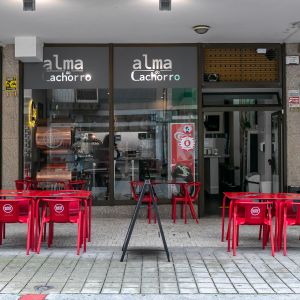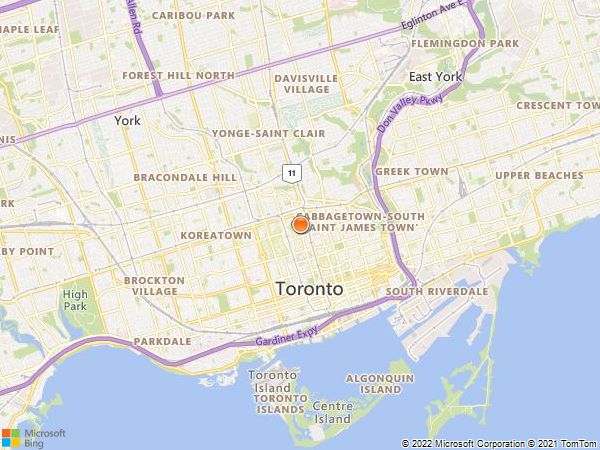Who uses it: Founder Maria Avgitidis’s team works with 25- to 65-year-old white-collar professionals—and even some celebrities. Price point: Coaching program for $8,500 (13. “The East Village location of The Boxing Club has been my go to spot ever since they opened back in 2018. ” in 29 reviews “ Excellent workout, Desiree was attentive and clear in her instructions, created a warm and welcoming environment. ” in 10 reviews. For $100, participants got a four-course meal at Tree, a quaint bistro in the East Village, with 20 minutes per course to wine and dine a potential love match. Meal choices had been filed online beforehand, eliminating the ordering onus. Still, the evening got off to a slow start. The first speed-dating event took place in Los Angeles in 1998. This innovative way of meeting as many as 25 (though most events top out at 14 or so) possible love interests at one time was created by Antony Beilinsohn, a Los Angeles-based television executive and clearly very creative person. South Eastern Speed Dating! Scroll down for events South Eastern Speed Dating is the perfect way to meet someone local! These events start slightly later at 7:15 pm. They are held on a Tuesday night at venues surrounding.
- East Village Speed Dating Over 30 Video
- East Village Speed Dating Over 3000
- East Village Speed Dating Over 30 Minutes
Kimberley Wurster, an East Village resident who co-owns a local small business with her husband, Stuart Zamsky, an officer of the E. Fifth St. Block Association, submitted the following query to Councilmember Carlina Rivera before the Tues., Jan. 12, Community Boards 3 and 6 Town Hall on Open Restaurants and Open Streets: Restaurants.

BY KIMBERLEY WURSTER | Ms. Rivera, like most Council District 2 residents, I’m proud to support restaurants and bars in my neighborhood, especially in this time of COVID.
Operators are doing what they must to survive, and we are ready to help them, as individual citizens and a city! But, as you know, our district suffers from an oversaturation of bars and restaurants.
As a proprietor of a small shop for the last 25 years, I have seen all like businesses close, while seeing an exponential growth in the hospitality industry. Walk down any avenue in my neighborhood (and probably most of District 2) and restaurants and bars outnumber other businesses by at least two to one.
Given these circumstances in your district, why did you sponsor a bill on Oct. 10 with “the establishment of a permanent outdoor dining program” in its title, and which specifies that upon the expiration of the temporary program on Sept. 30, 2021, the “…program would be replaced by a permanent program to allow for the use of roadway seating as outdoor dining areas,” without any input from, and benefit to the constituency you serve?

I understand that there is an existential issue regarding public space. But if one examines this particular choice, the space used by Citizen X for his or her car, now becomes an asset for a landlord who gains additional income renting it to the hospitality industry. If you look at the demographics of these two groups (an easy thing to do as you only need to observe a morning of alternate-side parking and a C.B. 3 State Liquor Authority meeting), they couldn’t be more different: The former is a diverse group of men and women, black, white and LatinX, mostly middle class; the other group, landlords and hospitality operators — wealthy white men.

Why are we transferring property so that these men can make more money on the backs and at the cost of residents? Why do you choose to give money to a wealthy real-estate and hospitality industry at the cost of our middle class? Why is such a dramatic and potentially disruptive change to our streetscape slipped in with temporary legislation in the midst of a pandemic?
Is our community’s goodwill toward these businesses misunderstood? Or being taken advantage of? Why is a temporary measure, highly appropriate for this time of COVID, being automatically forced on a future New York when COVID will not be a factor?
The neighborhoods of the East Village and Lower East Side are already overburdened with the hospitality industry. Why are you sponsoring a bill that promotes a Bourbon St. atmosphere, when residents already, literally, cannot sleep due to street noise and oversaturation?
Wurster is co-owner, White Trash, Midcentury Modern Antiques, at 304 E. Fifth St.
Kimberley Wurster, an East Village resident who co-owns a local small business with her husband, Stuart Zamsky, an officer of the E. Fifth St. Block Association, submitted the following query to Councilmember Carlina Rivera before the Tues., Jan. 12, Community Boards 3 and 6 Town Hall on Open Restaurants and Open Streets: Restaurants.
BY KIMBERLEY WURSTER | Ms. Rivera, like most Council District 2 residents, I’m proud to support restaurants and bars in my neighborhood, especially in this time of COVID.
Operators are doing what they must to survive, and we are ready to help them, as individual citizens and a city! But, as you know, our district suffers from an oversaturation of bars and restaurants.

As a proprietor of a small shop for the last 25 years, I have seen all like businesses close, while seeing an exponential growth in the hospitality industry. Walk down any avenue in my neighborhood (and probably most of District 2) and restaurants and bars outnumber other businesses by at least two to one.
East Village Speed Dating Over 30 Video
Given these circumstances in your district, why did you sponsor a bill on Oct. 10 with “the establishment of a permanent outdoor dining program” in its title, and which specifies that upon the expiration of the temporary program on Sept. 30, 2021, the “…program would be replaced by a permanent program to allow for the use of roadway seating as outdoor dining areas,” without any input from, and benefit to the constituency you serve?
I understand that there is an existential issue regarding public space. But if one examines this particular choice, the space used by Citizen X for his or her car, now becomes an asset for a landlord who gains additional income renting it to the hospitality industry. If you look at the demographics of these two groups (an easy thing to do as you only need to observe a morning of alternate-side parking and a C.B. 3 State Liquor Authority meeting), they couldn’t be more different: The former is a diverse group of men and women, black, white and LatinX, mostly middle class; the other group, landlords and hospitality operators — wealthy white men.
Why are we transferring property so that these men can make more money on the backs and at the cost of residents? Why do you choose to give money to a wealthy real-estate and hospitality industry at the cost of our middle class? Why is such a dramatic and potentially disruptive change to our streetscape slipped in with temporary legislation in the midst of a pandemic?
Is our community’s goodwill toward these businesses misunderstood? Or being taken advantage of? Why is a temporary measure, highly appropriate for this time of COVID, being automatically forced on a future New York when COVID will not be a factor?

East Village Speed Dating Over 3000
The neighborhoods of the East Village and Lower East Side are already overburdened with the hospitality industry. Why are you sponsoring a bill that promotes a Bourbon St. atmosphere, when residents already, literally, cannot sleep due to street noise and oversaturation?
East Village Speed Dating Over 30 Minutes
Wurster is co-owner, White Trash, Midcentury Modern Antiques, at 304 E. Fifth St.